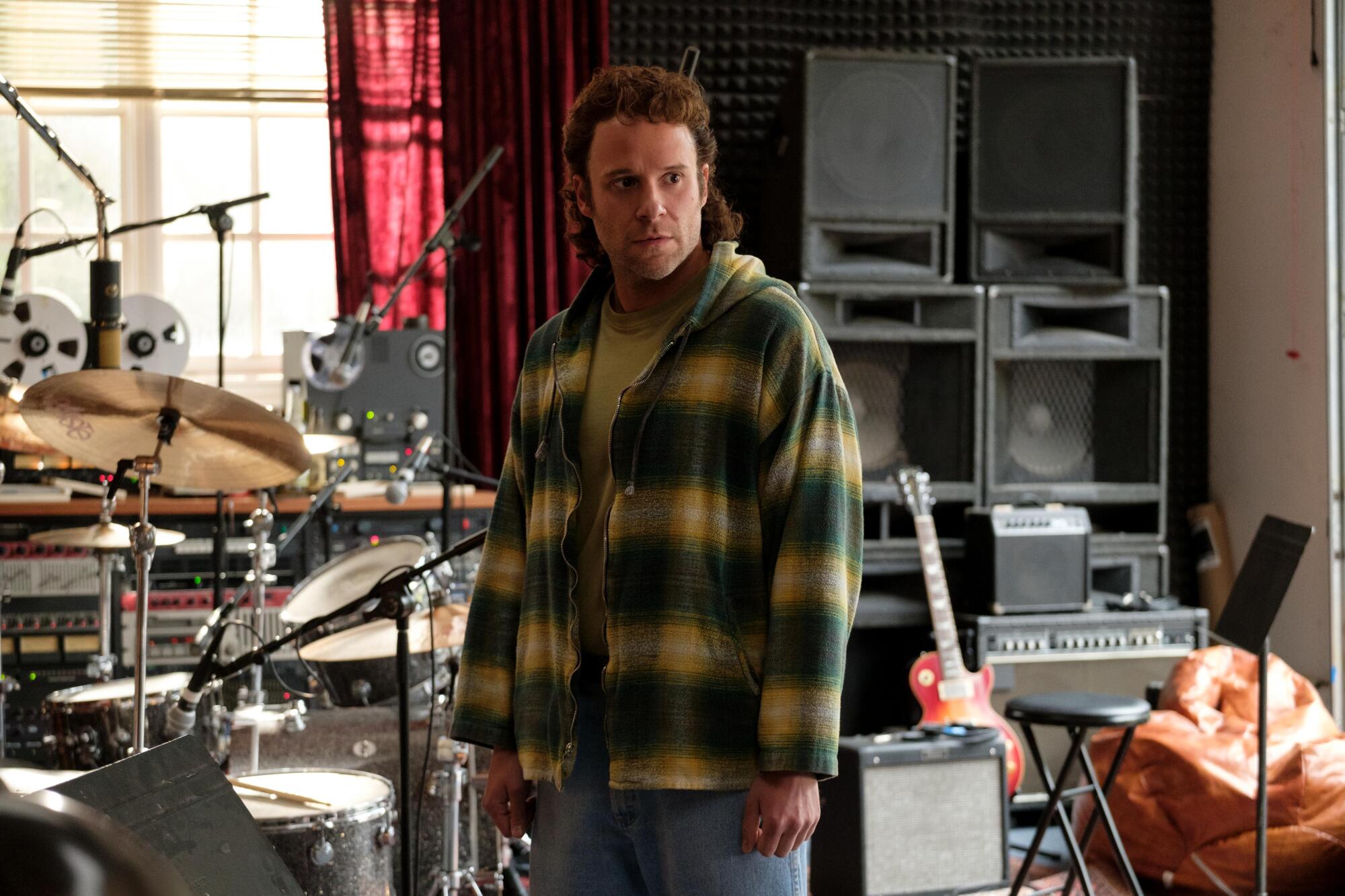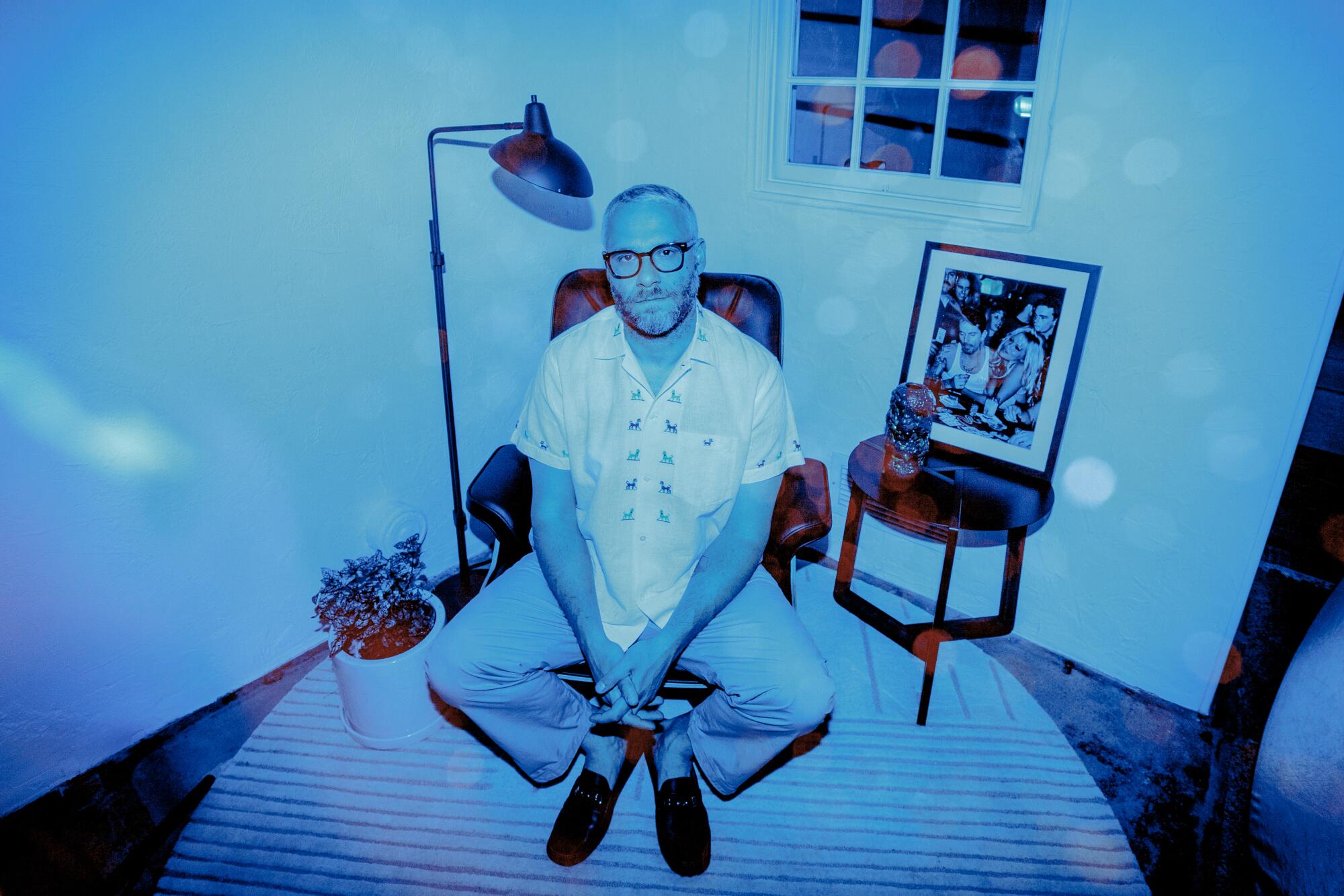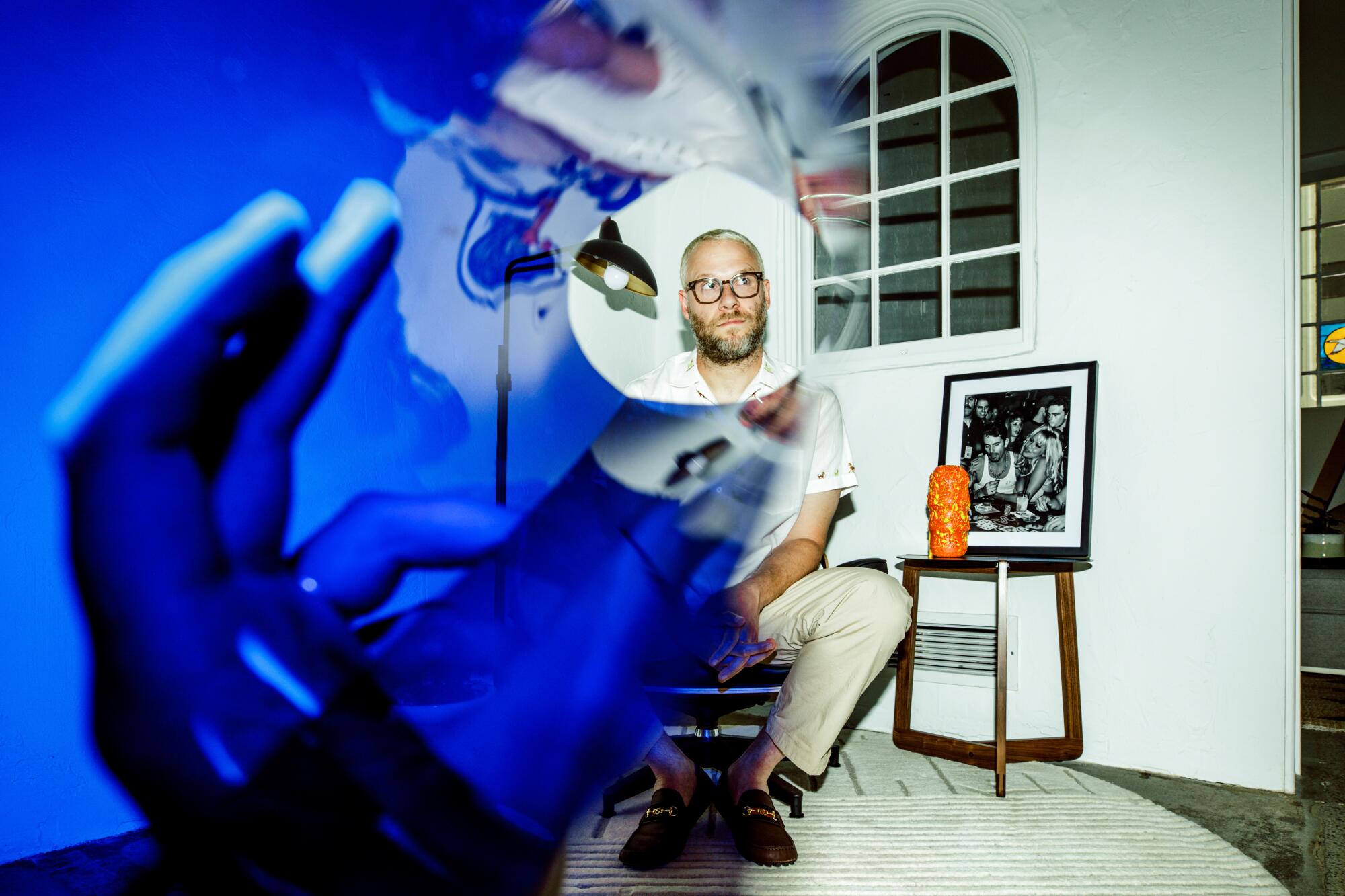
Despite his long-established reputation of playing put-upon nice guys, Seth Rogen wants to make it clear: He does not want you to like him this time. He doesn’t even like him this time.
“I think a lot of people feel like they have to like the people they are playing,” Rogen says. “Oh, God, I don’t at all. Like, I do not like him.”
The gregarious, engaged producer and co-star of “Pam & Tommy” is enjoying his first Emmy nomination for acting. He was a driving force in the creation of the double-digit-nominated limited series springing from a Rolling Stone article by Amanda Chicago Lewis about Pamela Anderson and Tommy Lee’s infamous sex tape made public.
“I assumed it was something they put out into the world. I assumed they were profiting from it,” Rogen says of the video that leaked in his pubescence. “I completely had it wrong and, in fact, the understanding I had was incredibly destructive in a lot of ways, on many levels.”
His surprise at a popular narrative being completely upended was something he wanted audiences to share. He wasn’t going to play Tommy Lee, the bad-boy drummer of Motley Crue. He certainly wasn’t going to play iconic ‘90s sex symbol Pamela Anderson. Those roles went to Sebastian Stan and Lily James. That left Rand Gauthier, the scrabbling handyman and sometime-porn actor who stole the couple’s intimate video. The problem? Rogen’s innate likability.

Yes, Pamela Anderson and Tommy Lee were wild and intense, “but deep down, they just wanted to have a family and have some normalcy,” suggests Stan.
“I wanted the audience to get the guy, but the danger for me was having the audience like the guy,” Rogen says of finding the line between empathy and sympathy for someone who did something objectively terrible. “I know that I am inherently a sympathetic actor. I go to test screenings; people like the characters I play on screen. If anything, I marvel at how many terrible things the characters I play can get away with. [This] was a conscious effort to try to keep the audience at arm’s length. It was a reductive thing: smiling less, laughing less. I don’t think I laugh at any point in the show really because that’s something people really are drawn to.”
The series portrays Gauthier as a struggling sad sack, still in love with his porn-actress ex-wife. He does some work for Lee and is understandably chagrined when the millionaire rocker not only refuses to pay, but threatens him with a firearm (per Gauthier’s account).

“You have to get why he thinks he’s right, but you could never think [he’s] right,” Rogen says. “There’s times where you’re like, ‘Yeah, f— Tommy Lee.’ Maybe he’s justified in some warped sense to exact some sort of vengeance or justice on Tommy, but the way he did it is the worst way imaginable.”
Rogen came to set with an interpretation he’d honed for two years, of Gauthier as “calculating” and “hostile.”
“It was instantly invalidated in, like, one minute, basically,” he says with a guffaw. “On the first day of shooting, Craig [Gillespie], the director, was like, ‘I think the less you do in some ways and the more kind of vacant he seems, the more you get.’ If you just look at what the person did, Rand, he’s not someone who really thought about his actions that much. He was never thinking two or three or four steps ahead.
“It’s your instinct as an actor to make [characters] seem deep and layered. And as you get older, you meet a lot of people who are just not that deep and layered. Just not thinking that much. Instead, it’s like he’s a sad, hurt guy who’s acting very emotionally and not at all considering the ramifications of his actions.”
Six Emmy contenders, including Adam Scott, Jin Ha, Rhea Seehorn and Kaitlyn Dever, discuss learning from teachers, collaborating with directors and watching themselves in our 2022 Envelope Drama Roundtable.

Rogen didn’t speak with Gauthier but got access to the full-length, “raw, raw ... sprawling” interview he gave to Rolling Stone.
“The real guy was maybe a little angrier and was maybe just a little bit worse of a guy. He’s probably less sympathetic than the character that I portray. Honestly, there’s little things like ... he was casually racist at times in the interview,” Rogen says, now free to release that trademark laugh.
“His background in the porn industry was interesting, and the fact that he was kind of known for being a guy with a small penis. When you get into the Tommy Lee of it all and the sex tape, you’re like, ‘Those are profoundly emotional motivations for someone.’ This guy [Lee] has a giant penis and holds a gun on him. A giant phallic gun. It’s like flaunting divine justice.”
So while Rogen and company engineered their way into an understanding of the character, Rogen notes he could only guess at Gauthier’s actual motives, as he has never met the real person. And he doesn’t particularly want to.
“I’m not incredibly interested in what he has to say about anything,” Rogen says, disdaining how little Gauthier considered the effects of his actions, especially on Anderson. “If I saw him from across the room, I’d be like, ‘No, I’m fine. I’ll hang out over here.’ ”
He laughs heartily.

More to Read
From the Oscars to the Emmys.
Get the Envelope newsletter for exclusive awards season coverage, behind-the-scenes stories from the Envelope podcast and columnist Glenn Whipp’s must-read analysis.
You may occasionally receive promotional content from the Los Angeles Times.













